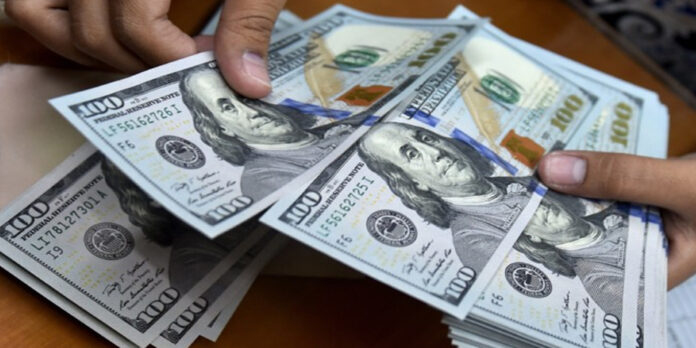The U.S. dollar declined on Thursday, reversing earlier gains, as investors reacted to a U.S. trade court ruling that blocked most of President Donald Trump’s proposed trade tariffs.
The Court of International Trade ordered the administration to revise the tariff orders within ten days, prompting an immediate appeal from the administration and a challenge to the court’s authority.
The initial market optimism was tempered by the limited scope of the court’s decision, which focused specifically on the emergency authorization component of the tariffs. Despite this, the ruling added uncertainty to the administration’s broader trade agenda, contributing to the dollar’s weakness.
Economic data also weighed on the greenback. The U.S. economy contracted by 0.2% in the first quarter, and new unemployment claims rose more than expected, signalling potential economic stress. Concerns persist that the tariff strategy could further slow economic growth and revive inflation, while the unpredictable nature of its implementation continues to raise caution among international investors.
The Federal Reserve has kept interest rates unchanged, maintaining a cautious stance amid inflation concerns and the need to assess the impact of recent economic developments. The trade court ruling is expected to ease some inflation expectations and may restore a measure of confidence in institutional oversight.
This development has supported broader risk sentiment, which could, over time, favor the dollar, particularly against traditional safe-haven currencies.
Nonetheless, the potential for a renewed or adjusted tariff approach remains. If the administration wins its appeal or uses alternative legal mechanisms, it may reinforce its tariff agenda, possibly increasing the economic impact of such measures.
Earlier in the week, sentiment improved slightly when the president postponed a plan to impose 50% tariffs on European Union imports. This delay, combined with strong earnings from Nvidia, temporarily boosted investor confidence and demand for the dollar.
Nvidia exceeded sales expectations as clients increased purchases of its AI chips ahead of new export restrictions to China, underscoring its influence on broader U.S. market performance.
The euro rose 0.5% to $1.1349 after hitting a low of $1.1209, its weakest level since May 19. The dollar dropped 0.28% to 144.42 yen after reaching 146.28 earlier in the session, its highest since May 15. It also declined 0.42% to 0.824 against the Swiss franc.
Investors continue to monitor developments related to a tax cut and spending bill under discussion in Congress. The proposed legislation, expected to significantly increase U.S. debt, has drawn criticism for lacking sufficient spending cuts.
The administration also plans to present a formal package next week aimed at institutionalizing spending reductions proposed by a team led by Elon Musk.
Rising concerns about the U.S. fiscal outlook led to higher yields on longer-term Treasury securities and weak demand in a 20-year bond auction. Meanwhile, in Japan, the yen came under pressure earlier in the week amid speculation that the government may reduce issuance of ultra-long-term bonds following recent sharp increases in domestic yields.




